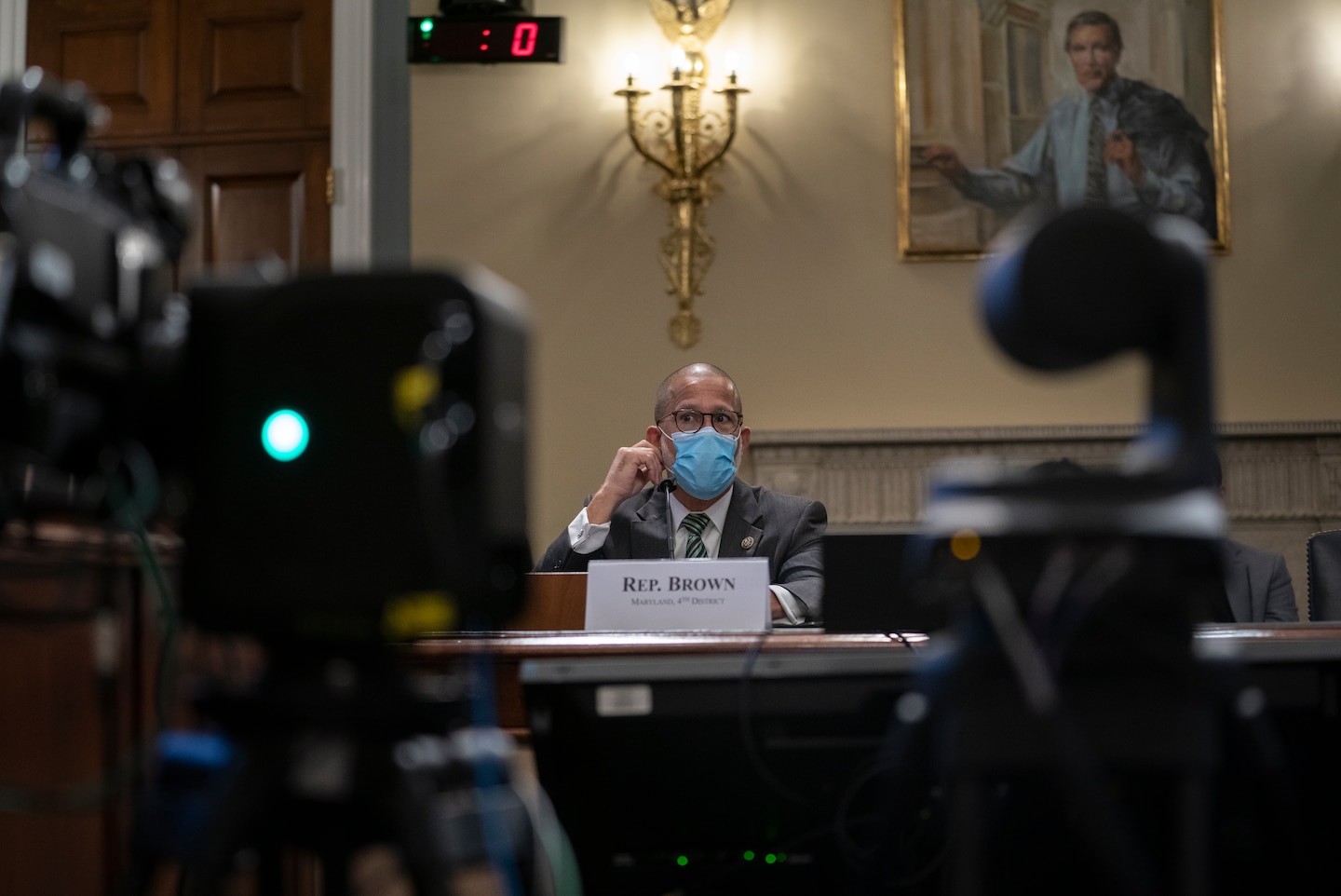When it comes to congressional oversight of our military, the U.S. has a serious diversity problem

The Joint Chiefs is not the only sphere that suffers from a lack of representation. When it comes to congressional oversight of the United States’ armed forces, our nation has a serious diversity problem.
The House and Senate Armed Services Committees are two of the most powerful standing committees in Congress. They provide oversight and set funding levels for the Department of Defense and portions of the Department of Energy — nearly half of the government’s discretionary budget. The Senate Armed Services Committee has the distinguished mission of advising and consenting on the nominations of both senior military and civilian nominees for the Defense Department. But African American voices are almost nowhere to be found on those critical committees.
Rep. Anthony G. Brown (D-Md.) is the only elected African American member of Congress on either the House or Senate Armed Services Committees. These committees decide on pay raises for service members, regulate their health and housing benefits and can even limit deployments or redeployments. Rep. Brown brings a distinguished military background to the committee, having retired from the U.S. Army Reserve as a colonel and having served both as an aviator and a JAG officer. In addition to his military service, he was Maryland’s lieutenant governor, both of which make him a powerful voice in Congress.
But one voice is not enough. The national defense authorization and appropriation bills from the 2020 fiscal year authorized $738 billion toward defense spending. The dearth of African American voices on civilian oversight committees is even more stark considering that 17 percent of our nation’s 2.1 million service members, approximately 357,000, are black, yet they are the least represented on their oversight committees.
There are many reasons for the lack of diversity in the U.S. national security establishment. The national security arena can be complex and exclusive, which creates a steep learning curve for those who wish to enter. One does not simply apply to be the secretary of the Army, Navy or Air Force; the most talented of individuals still need a senior-level person to sponsor and guide them through the pipeline with the end goal of gaining enough of a platform to prove their national security credentials on a large stage. For civilians, the Armed Services Committees are that powerful stage. But as things stand now, the utter lack of diversity at the top ranks makes it more difficult for a younger generation of women and racial minorities to visualize a clear pathway for success for themselves in the national security apparatus.
Rep. Brown was the only African American voice present during committee consideration of the National Defense Authorization Act for Fiscal Year 2021, which will change the laws regulating the military’s ability to disperse peaceful protesters and remove Confederate names and the display of the Confederate flag from Defense Department installations. Both Gen. Brown and Rep. Brown deserve better.
Americans deserve more diversity in those rooms and on committees. As new African American members are sworn into the 117th Congress, they should strongly consider serving on the House and Senate Armed Services Committees to give their constituents and African American service members more of a voice on these issues. It is unacceptable that these conversations and decisions about our racial history are being made about us, but without us in the room.
African Americans have served in every war for the United States, dating back to our founding. African American soldiers are the largest and longest-serving minority group of the Armed Services. In a time when our country is reckoning with a dismal record of injustice for African Americans, it is utterly distressing that the health and safety of more than 350,000 African American service members are determined in part by a committee that includes only one person who looks like them.
In a truly just society, congressional committees should reflect the rich composition of the service members they oversee. It is past time to right this wrong.
Read more:






